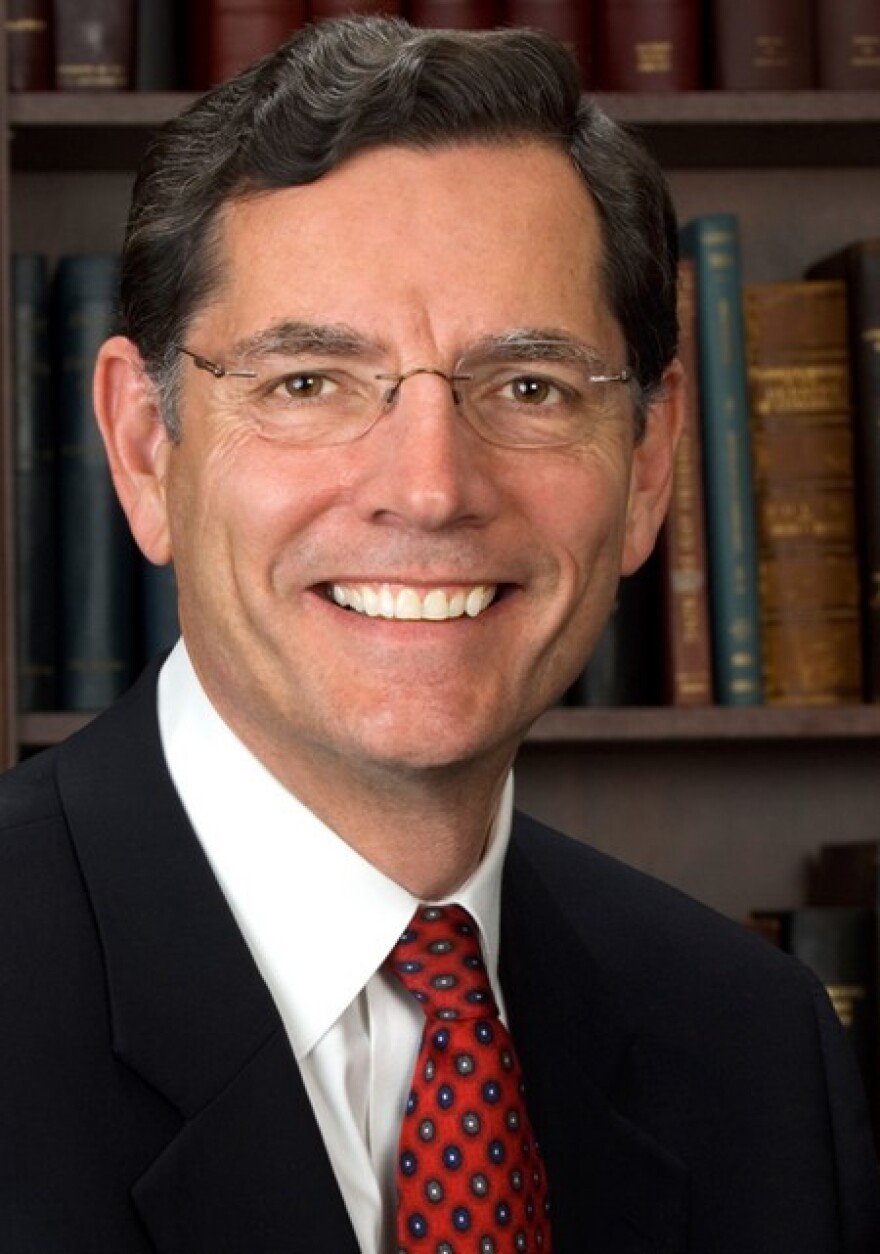Next week the U-S Senate is expected to have a debate on a bipartisan bill aimed at increasing energy efficiency in the U-S, but it could get derailed by an oil pipeline in the Midwest. Matt Laslo has the story from Washington on Wyoming Senator John Barrasso's role in the ongoing debate.
MATT LASLO: The federal government is the single biggest consumer of energy in the U-S, so a bipartisan group of lawmakers want to make it an example to the private sector. The Shaheen-Portman energy bill attempts to do that by increasing energy efficiency in everything from federal worker's computers to federal buildings themselves. Virginia Democratic Senator Tim Kaine says it's good the bill also increases efficiency standards for buildings nationwide.
TIM KAINE: The conservation and efficiency technologies are amazing – they can do so much, so accelerating that in the federal space through this legislation is really smart. And it’s something we ought to be able to all be on the same page on.”
LASLO: Wyoming Senator John Barrasso voted in favor of the bill in the energy committee. But he now wants the debate to be broader than just energy efficiency. Barrasso and other Republican leaders are negotiating a way to get an up or down vote on the controversial Keystone XL pipeline, which would run from Canada to the gulf coast, and also his liquified natural gas bill, or LNG.
JOHN BARRASSO: We’re saying we should have a substantive discussion on energy and debate on energy, including Keystone, including LNG, including coal regulations. There are a number of different components that need to be a part of a discussion if there is a bill on the floor.”
LASLO: As for Keystone, Barrasso wants clear direction from the Senate.
BARRASSO: I want something to actually go to the president’s desk. That says approve Keystone and he signs it. And if he wants to veto it he gets to do that.”
LASLO: Although the proposed pipeline doesn’t cut through Wyoming Congresswoman Cynthia Lummis says it would still be a win for the state.
CYNTHIA LUMMIS: But we have pipe manufacturers and that is a business that is really fledgling in my state, very new to my state.”
LASLO: Barrasso says that’s partly why he’s lobbying so hard to get a broad array of energy amendments debated.
BARRASSO: If we aren’t allowed to have an open debate on different issues of energy and a broad debate on energy itself, then I would think that we missed a great opportunity here.”
LASLO: Barrasso stops short of saying he’ll filibuster the bill if his demand of a Keystone vote isn’t met, but Senator Kaine - a former Virginia governor - says he just doesn’t understand that negotiating tactic.
KAINE5 “I haven’t been in the Senate long enough to know why if something is good, you would say, ‘I won’t do something good unless you do five other things I want.’ If it’s good we ought to do it. The committee supported it. It’s bipartisan. We ought to do it.”
LASLO: Barrasso counters that he understands American voters better than the president.
BARRASSO: You take a look at some of the criticism that’s coming at the president from all sides of this and how he’s being held hostage by environmental extremists, I think that for people that want to have jobs, for people looking to work, for the long term unemployed, they’re being hurt by the president’s delay.”
LASLO: As for the pipeline, the House has passed dozens of energy related bills, including the Keystone pipeline, but Lummis is frustrated bills die in the senate.
LUMMIS: “Republicans don’t understand why Democrats wouldn’t want to make the strongest growth element in our economy, which is energy production and pipelines and the abundant energy we have an issue that both parties can share.”
LASLO: But Senator Kaine says the energy efficiency bill is important on its own. He says the broad bipartisan coalition behind it can also send a message to a public that's fed up with this Congress.
KAINE: “We ought to be looking to do those things just to show people, ‘Look, we know how to work together.”
LASLO: Party leaders continue to negotiate just how many amendments to allow and whether to allow a stand alone vote on the pipeline. If that happens it just may pass with the support of rank and file Democrats, which analysts say would embarrass the president at a time when his approval rating continues to slump.
For Wyoming Public Radio, I’m Matt Laslo in Washington.







